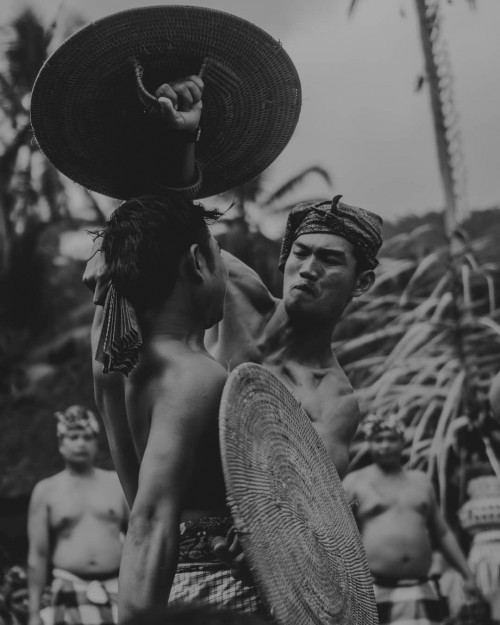
Many unique and interesting traditions that can be witnessed while in Bali. The tradition of the Mekare-kare Pandan War is one of them. This tradition is an ancestral culture that is tried to be maintained for generations by the Balinese who live in the Tenganan Pegringsingan Village.
What is Pandan War (mekare-kare)?
The Pandan War or Mekare-kare is a tradition that has existed for generations in the Tenganan Pegringsingan Village. If you are visiting the Tenganan Pegringsingan Village and witnessing the Mekare-kare being held, it will be a valuable and unforgettable experience for you.
This tradition is a series of religious ceremonies performed when the Sasih Sembah ceremony is held. The Sasih Sembah Ceremony is the biggest ceremony that is held only once a year. Usually held in June to coincide with the Ngusaba Kapat (Sasi Sembah) ceremony. While Mekare-kare is held for 2 days starting at 2 pm in the yard of Tenganan Village Hall.
Philosophy of Pandan War:
The people of Tenganan Pegringsingan Village are Hindus like most Balinese people. But who became their highest god was Lord Indra, who was different from the other residents, namely Tri Murti, (Brahma, Vishnu, and Shiva) as the highest gods.
Therefore, the Pandan War was held as a tribute to Lord Indra as the God of War in addition to respecting the ancestors. This pandan war is also symbolized as a warrior who carries pandanus as a weapon and tamiang as a shield.
Ceremony or Procession:
As the name implies the Pandan War, the weapons used are thorned pandanus tied. This pandan as a symbol of a mace is equipped with a shield made of rattan used for shields.
The Men will wear traditional clothing consisting of sarong, shawl, and headband without wearing clothes or only shirtless. The Pandan war should only be followed by men who begin to reach adulthood. Before the top event began, all participants went around the village to beg for safety.
During the war, participants stood face to face one on one. Each participant carries a bunch of pandan leaves in his right hand and a shield in his left hand and a referee is in the middle of the two participants.
When on cue began, the two participants immediately attacked each other by hugging each other while hitting pandan on the opponent's back. While being beaten, the pandanus was also rubbed/crushed, hence the so-called Mageret Pandan Ceremony.
It is inconceivable how painful the pandan's thorns had stuck and injured the participants' backs. But herein lies the guts of each participant tested. The Mekare-Kare only lasted for one minute accompanied by gamelan music that stimulated the spirit.
All participants took turns fighting and this procession lasted about 3 hours. After the procession, the wound on the participant's back was treated with traditional medicines. After finishing the war, there was not even a grudge in the hearts of each participant because Mekare-Kare was a tradition for offering ceremonies that had to be done sincerely.
Thumbnail by: @cahyana_chum